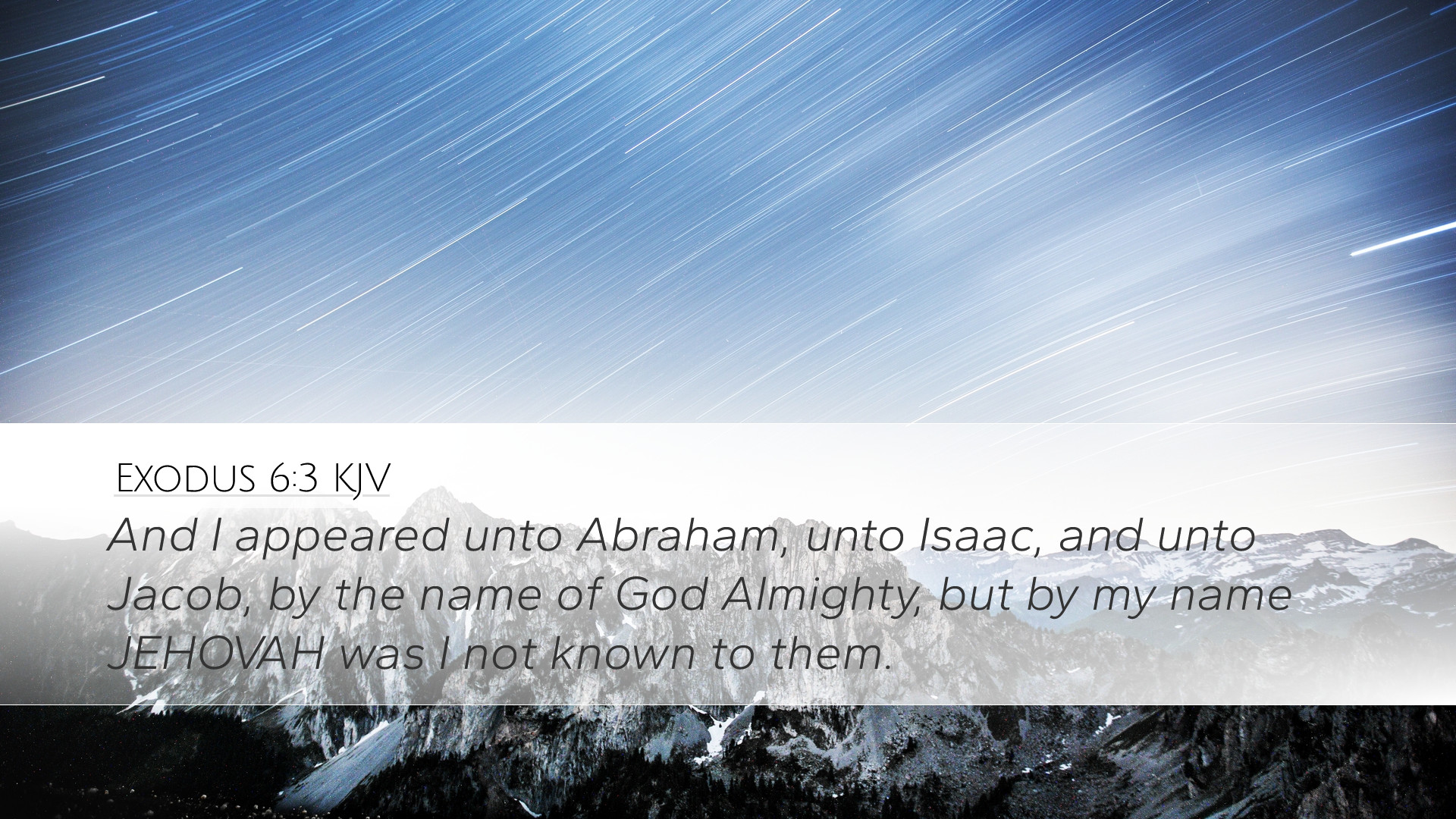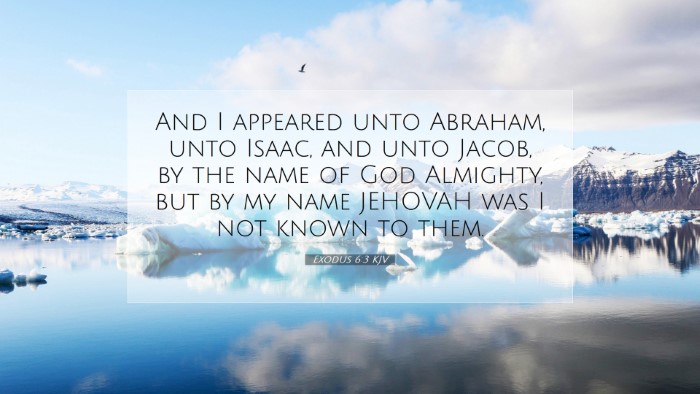Commentary on Exodus 6:3
Exodus 6:3 states: "And I appeared unto Abraham, unto Isaac, and unto Jacob, by the name of God Almighty, but by my name JEHOVAH was I not known to them." This verse serves as a pivotal moment in the revelation of God's character and His covenant relationship with His people. In the following commentary, we draw upon the insights of public domain scholars to explore its significance and implications.
Historical Context
This verse occurs during a critical juncture in the narrative of the Exodus, where God reassures Moses of His commitment to the covenant made with the patriarchs. The Jewish people were in great distress under the oppressive rule of Pharaoh, and God conveys that He is about to intervene powerfully on their behalf.
God's Names and Their Significance
In this verse, two names of God are introduced: El Shaddai (God Almighty) and Elohim (Jehovah). Each name reflects different facets of His divine nature and relationship with humanity.
- El Shaddai: This name signifies strength, power, and sustenance. As Henry notes, it highlights God’s ability to provide and protect.
- Jehovah: This name is associated with God's covenant faithfulness and relational aspect. Barnes emphasizes that this name denotes His being actively involved in the lives of His people.
Theological Implications
The revelation of God's name is crucial for understanding His character. God had been known as 'El Shaddai' to Abraham, Isaac, and Jacob, which emphasizes His omnipotence and providential care. However, the name 'Jehovah' implies a deeper relationship — it indicates His eternal unchanging nature and the fulfillment of His promises.
Understanding 'Jehovah'
Clark elaborates on the name 'Jehovah' as God's self-revealed name, indicating that He is not just a distant deity but personally involved with His covenant people. It offers assurances of His reliability and unshakable commitment to His promises. The transition from 'El Shaddai' to 'Jehovah' marks a progression in revelation, signifying that the people of Israel would come to know Him in a more profound manner.
Covenant Relationship
The contrast drawn between how the patriarchs knew God and how the Israelites would come to know Him is profound. While the patriarchs were given promises, the Israelites stood on the brink of experiencing the fulfillment of those promises in their liberation from Egypt.
- The Promised Deliverance: Henry comments on how this verse indicates the definitive act of deliverance that was to come, assuring them that God's name and nature would be fully revealed in their liberation.
- The Personal God: This passage reinforces the theme that God is not just a powerful figure but a personal God who desires to be known. Clarke concurs, asserting that the relationship God desires with His people is characterized by intimacy and knowledge.
Pastoral Application
For pastors and leaders, this verse serves as a reminder of the importance of revealing God’s nature in ways that resonate with the experiences of those they minister to. Understanding God as both Almighty and relational provides a comprehensive approach to teaching about His character.
Encouragement in Trials
Just as the Israelites experienced oppression, believers today face their own challenges. The promise that God will reveal Himself as 'Jehovah' brings hope, assuring them that He is not only powerful enough to deliver but also present and wanting to engage in a meaningful relationship.
Conclusion
Exodus 6:3 is a profound declaration that invites deeper reflection on the nature of God and His interaction with humanity. As indicated by these commentaries, the transition from 'El Shaddai' to 'Jehovah' is a revelation of God's desire for an intimate covenant relationship with His people. This verse underlines the importance of recognizing both His omnipotence and His personal involvement in our lives, a truth that is both comforting and transformative.
As we study this verse, may we seek to not only understand God’s names but also to embrace the implications of knowing Him deeply and personally in our faith journeys.


